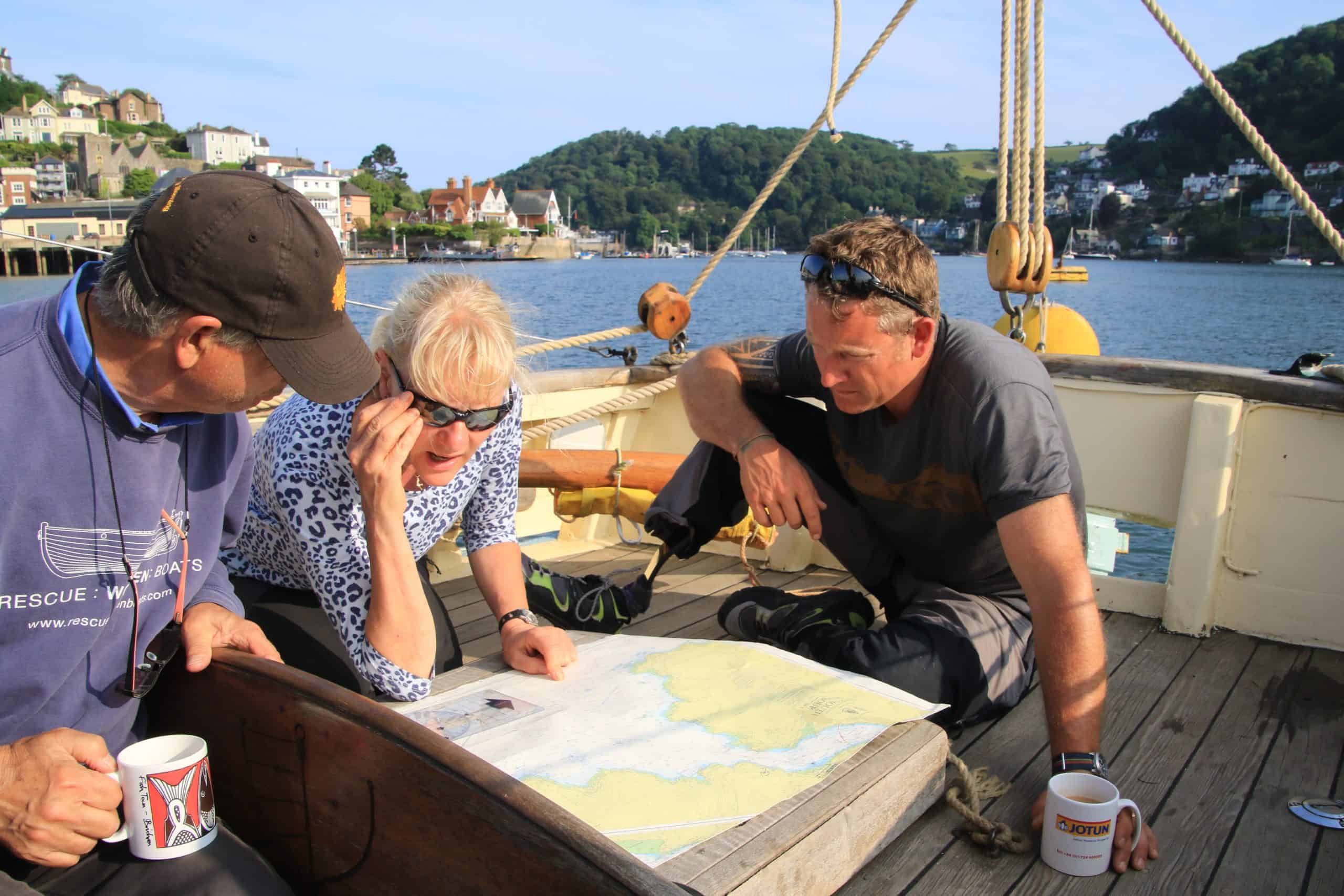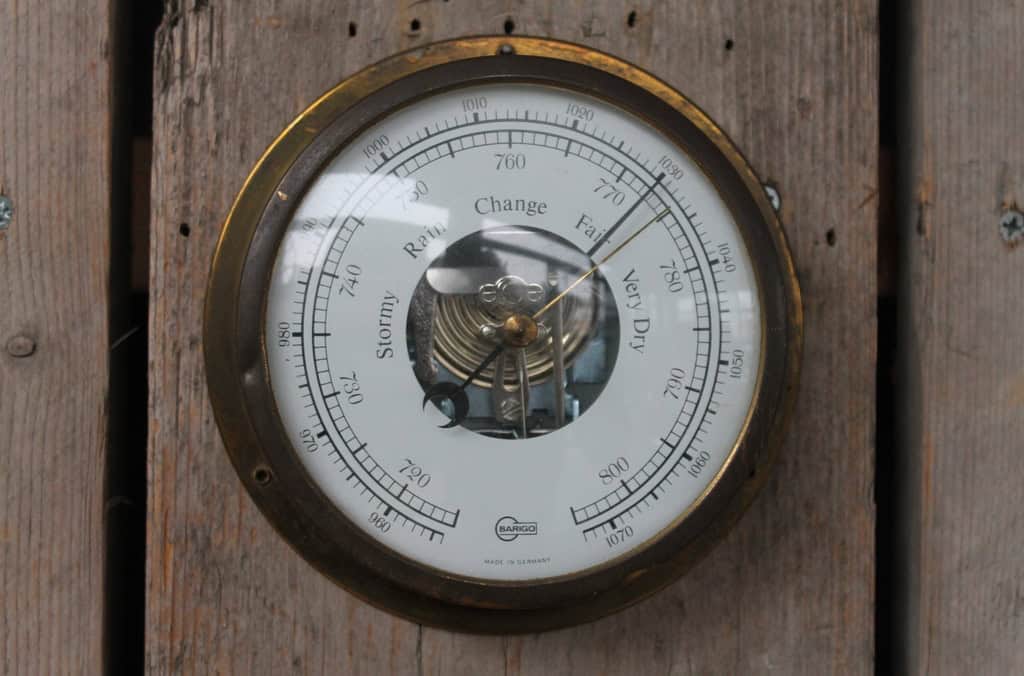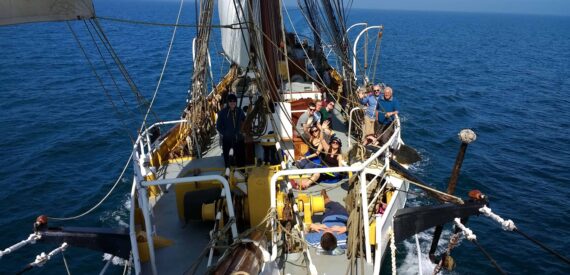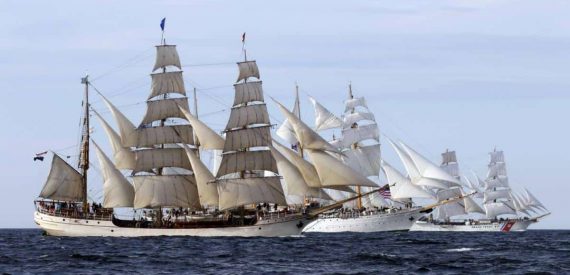RYA Yachtmaster Coastal & Yachtmaster Offshore Theory – Syllabus
This is an advanced course in navigation and meteorology for candidates for the Yachtmaster Coastal (formerly called Coastal Skipper) and Yachtmaster Offshore Certificate. While undertaking the Theory Course is not compulsory to take your Yachtmaster exam, it is highly recommended. The exam will test you on all aspects of this syllabus.
The syllabus makes some provision for the revision of subjects in the Day Skipper course. Again, having the Day Skipper ticket is not compulsory, but it will be very hard to absorb all of the info from scratch without a pretty thorough grounding. We would suggest that you take a look at the Day Skipper syllabus. If you’re not already comfortable with all the topics covered, take that course before you take this one.

1. Position
- Dead reckoning and estimated position
- Satellite-derived position
- Use of waypoints to fix position
- Radar fixes
- Techniques of visual fixing
- Fixes using a mixture of position lines
- Relative accuracy of different methods of position fixing
- Area of uncertainty
2. The magnetic compass
- Allowance for variation
- Change of variation with time and position
- Causes of deviation
- Swing for deviation (but not correction)
- Allowance for deviation
- Different types of compass
3. Tides
- Causes of tide – Springs and Neaps
- Tide tables – sources
- Tidal levels and datum
- Standard and secondary ports
- Tide anomalies
- Tidal Streams
- Sources of tidal information
- Tidal stream information in sailing directions and Yachtsmen’s Almanacs
- Allowance for tidal streams in computing a course to steer
- Tide rips, overfalls and races
- Tidal observation buoys, beacons etc.
5. Buoyage
- IALA system buoyage in Region A
- Limitations of buoys as navigational aids

6. Lights
- Characteristics
- Ranges – visual, luminous and nominal
- Rising and dipping distances
- Light lists
7. Pilotage
- Harbour regulations and control signals
- Methods of pre-planning
- Clearing lines
- Use of soundings
- Transits and leading lines
8. GPS and chart plotters
- Principles of operation and limitations of use
- Raster and vector charts
- Datum
- Importance of confirmation of position by an independent source and keeping a separate record of position
- Importance of paper charts
9. Echo sounders
Principles of operation and limitations of use
10. Logs (speed and distance measuring)
Principles of operation limitations of use
11. Deck log
- Importance of log as yacht’s official document
- Layout of log, hourly and occasional entries
12. Meteorology
- Basic terms
- The Beaufort Scale
- Air masses
- Cloud types
- Weather patterns associated with pressure and frontal systems
- Sources of weather forecasts
- Ability to interpret a shipping forecast
- Weatherfax and weather satellite information
- Land and sea breezes
- Sea fog
- Use of a barometer as a forecasting aid

13. Rules of the Road
A sound knowledge of the International Regulations for Preventing Collisions at Sea, except Annexes 1 and 3
14. Safety at Sea
- Personal safety, use of lifejackets, safety harnesses and lifelines
- Fire prevention and fire fighting
- Distress signals
- Coastguard and Boat Safety Scheme
- Preparation for heavy weather
- Liferafts and helicopter rescue
- Understanding of capabilities of vessel and basic knowledge of stability
15. Navigation in restricted visibility
- Precautions to be taken in fog
- Limitations to safe navigation imposed by fog
- Navigation in poor visibility
16. Passage planning
- Preparation of charts and notebook for route planning and making, and use at sea
- Customs regulations as they apply to yachts
- Routine for navigating in coastal waters
- Strategy for course laying
- Use of waypoints and routes
- Use of weather forecast information for passage planning strategy
- Sources of local and national regulations



